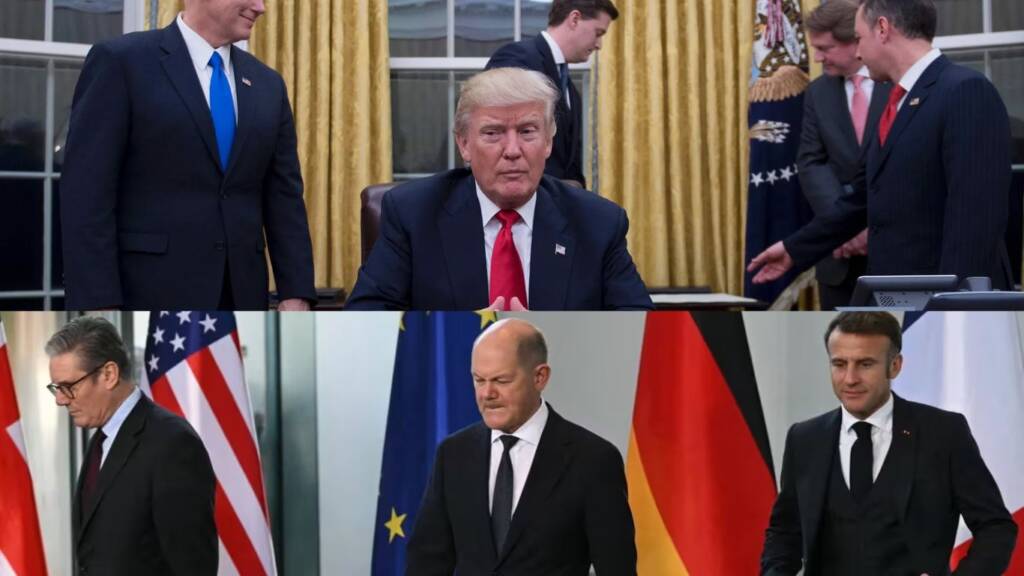The EU, or the European Union, may collapse within next four years of Trump administration. The reason is simple: Trump will give EU two choices: to either align its economic and foreign policy with the US or to go with China. It’s a classic lose-lose for the EU.
The EU is now stuck between two possible scenarios.
In scenario 1 if the EU bows down to Trump’s will and starts decoupling from China. It will greatly test EU’s unity and fuel resentment among member countries. On the other hand, an agitated China may also take retaliatory measures, further dealing a blow to the faltering EU economy.
In scenario 2, if the EU strikes a defiant tone and continues to trade with China. Trump will resort to using massive sanctions, which will cripple EU economies in no time. It’s a classic lose-lose situation for the EU.
The French foreign minister recently said we have entered an era when it is survival of the fittest.
It seems due to these concerns the EU politicians gather this week in Davos for the annual World Economic Forum, there are glaring signs of concerns. Everybody is panicking. Even Europe’s strongest economies are struggling to survive.
Across the EU, governments face both political and economic challenges. They are grappling with empty budgets, burdensome bureaucracy, high interest rates, and a cost-of-living crisis. These factors are stifling corporate growth and consumer spending, leaving European businesses unable to compete effectively with rivals in the US and China.
A case in point are the situations of Germany and France; two of EU’s biggest economies. France has cycled through four prime ministers in one year due to a budget crisis and growing deficits, and it is teetering on the edge of an economic collapse. Meanwhile, Germany’s economy has contracted for two straight years, an event unprecedented in the last two decades, dragging down the rest of the EU.
German Chancellor Olaf Scholz, is struggling with unpopularity, and has called a snap election in February that he is widely expected to lose. First, the economy collapsed, now the governments are collapsing like a house of cards.
EU was faring extremely poorly, without Trump. With Trump, their problems will just get worse. Trump has threatened steep tariffs on European exports, including cars, alcohol, and pharmaceuticals, as a response to their trade surpluses with the US. But wait, the economic risks don’t end there.
If Trump imposes a universal 60% tariff on Chinese goods as promised, global trade patterns would likely shift. This could lead to an influx of cheap Chinese goods flooding the EU market, further threatening its struggling manufacturing sectors.
But wait, the EU also faces one more problem: Trump’s unpredictability. If EU decides to go all guns blazing against China but on the other hand, Trump reverses the course and buries the hatchet with China’s Xi Jinping. Again, this will be disastrous for the bloc. This scenario is not far-fetched. After escalating tensions during his first term, Trump struck a trade deal with China to increase U.S. exports and ease their trade war.
Not to forget that Trump has Elon Musk as his ally. Musk is an advocate of strong US-China trade ties. Musk has even opposed a TikTok ban and said China should also open up its market for social media platform X. His Tesla company also relies big time on the Chinese market. And, evidently Musk enjoys a great influence over Trump.
Europe is now fearing a repeat of what happened five years back. So, it would like to keep its cards up its sleeve. But then, there is also a unity problem.
EU’s stance on literally everything is heavily divided. On China too, you get to hear conflicting voices. For instance, European commission president Ursula von der Leyen took a tougher approach, overseeing measures like tariffs on Chinese electric vehicles, trade defense probes, and stricter investment screening. However, several EU countries—including Germany, Hungary, Spain, and Slovakia—prefer a softer stance, as their economies depend heavily on Chinese trade.
In an effort to ease tensions, António Costa, president of the European Council, recently agreed with Xi Jinping to hold an EU-China summit in Brussels in May, just days before Trump’s inauguration. This move highlights the lack of unity within the EU, not just between member states but also among its key institutions.
Germany’s upcoming election could complicate matters further. If Christian Democrat Friedrich Merz becomes the next chancellor, he is expected to adopt a more critical stance on Beijing than Olaf Scholz or Angela Merkel. Merz could push for a revived EU-US trade deal, abandoned a decade ago, which might align Germany more closely with the anti-China hawks in France and Brussels.
For now, Europe faces a precarious balancing act. Its leaders must navigate tensions with both the US and China, manage internal divisions, and address growing economic instability—all while attempting to secure their place in an increasingly fragmented world.
